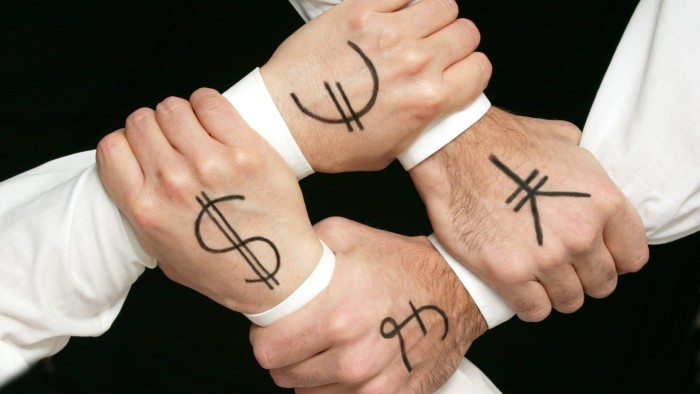Stay informed with free updates
Simply sign up to the Global Economy myFT Digest — delivered directly to your inbox.
The trade war unleashed by Donald Trump may be just the precursor for much larger turmoil in the global economy. Whatever tariffs look like when the dust settles, deficits, surpluses and trade patterns will still be shaped by financial flows. It is only a matter of time before another economic policy war flares up — indeed it has already begun. Welcome to the new age of financial repression.
Financial repression refers to policies designed to steer capital to fund government priorities, rather than where it would flow in unregulated markets. In the postwar decades, western countries used regulation, tax design and prohibitions to both limit capital flows across borders and direct domestic flows into favoured uses, such as government bonds or housebuilding.
The US then spearheaded the decades of financial deregulation and globalisation that led up to (and led to) the global financial crisis. The US has now made abundantly clear that it rejects its traditional role in dismantling financial walls between countries and anchoring the global financial order.
Rumours of a “Mar-a-Lago accord”, which would manage the dollar’s value down while forcing global investors to discount and lock in lending to Washington, has produced shocked disbelief by other countries. But it is not just Mar-a-Lago: several policy proposals have surfaced recently that can fairly be grouped together as measures of financial nationalism.
These include a tax on remittances, levies on foreign investment stakes by nations with policies Washington disapproves of, and the promotion of dollar-denominated stablecoins and looser bank leverage regulations. The last two would both incentivise flows into US government debt securities.
While the US represents the biggest swing of the pendulum, other big economies have the same orientation away from letting finance flow freely.
China never stopped practising financial repression at scale. It has retained a non-convertible currency and manages its exchange rate. It uses a network of state-controlled or state-influenced banks, corporations and subnational governments to steer the flow of credit to outlets indicated by various economic development doctrines favoured by Beijing over the years. The latter has had both successes (the electric vehicle industry) and failures (the housebuilding bubble). China is also working on an alternative to the dollar-based international payment system.
Europeans have long been purist about free capital mobility — originally inside the EU’s single market, but also with the rest of the world. Yet there, too, attitudes are changing.
The influential reports of former Italian prime ministers Enrico Letta and Mario Draghi have emphasised that the bloc sends several hundred billion euros abroad every year when there are huge domestic funding gaps. This invites policymakers to adopt measures to redirect financial flows. So does the agenda to unify national financial markets.
The aim of making the euro a more attractive reserve and investment currency has also been invigorated by Trump’s seeming disdain of the dollar’s role. A big EU-level borrowing programme suddenly looks at least conceivable, and an official digital euro is on the way. In parallel, the UK is trying to coax pension funds to put more savings in the hands of British businesses.
Europe may not end up with fully fledged financial repression, but it’s now open season for policies to steer financial flows where governments, not just markets, think they are most needed. In reality, commitments to climate and digital transitions and defence-related infrastructure leave no other choice.
What should we make of this return of financial state activism?
First, note that it comes with financial globalisation already in decline. Rapid growth in cross-border financial claims by banks halted in 2008. From nearly 50 per cent of the world economy at the start of 2008 such claims have shrunk to 30 per cent. That may have been partly offset by non-bank activity but in any case it happened without deliberate policies to keep money at home.
Second, complaints about other countries’ surpluses could quickly change if we end up in a scramble for the world’s available capital that will make the trade wars look like child’s play.
Third, much can go wrong. It is not that liberalised finance has covered itself in glory (it hasn’t). But state-directed finance is a high-risk activity, prone to cronyism and misallocation without safeguards. Still, it may be necessary. If everyone is going to try to keep more capital at home, it’s even more important to put it to the best uses.
martin.sandbu@ft.com


